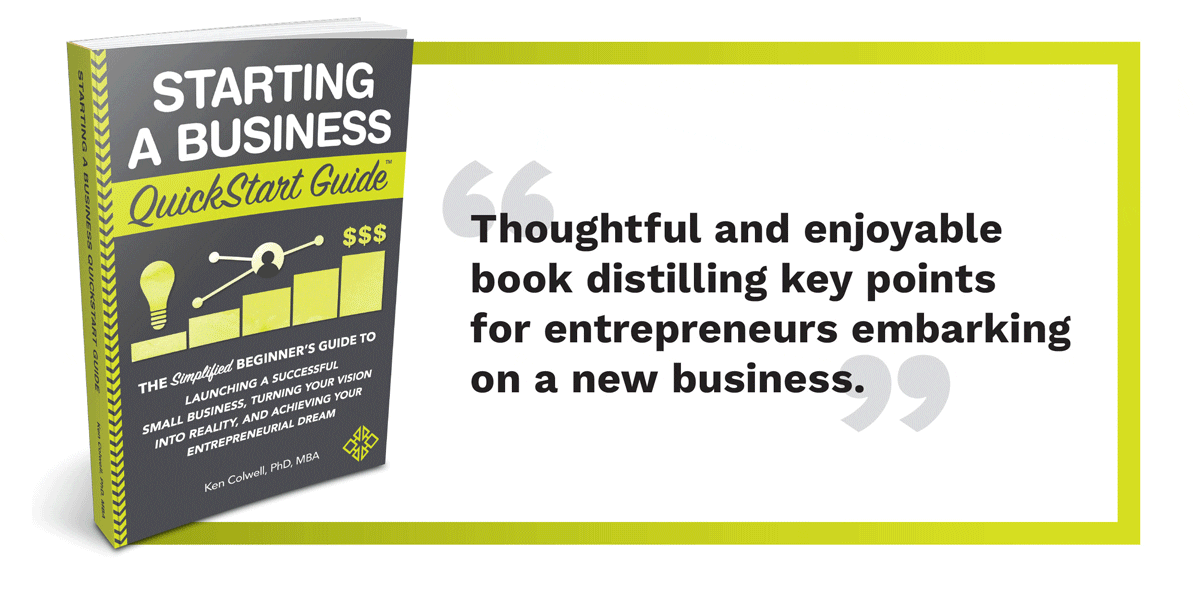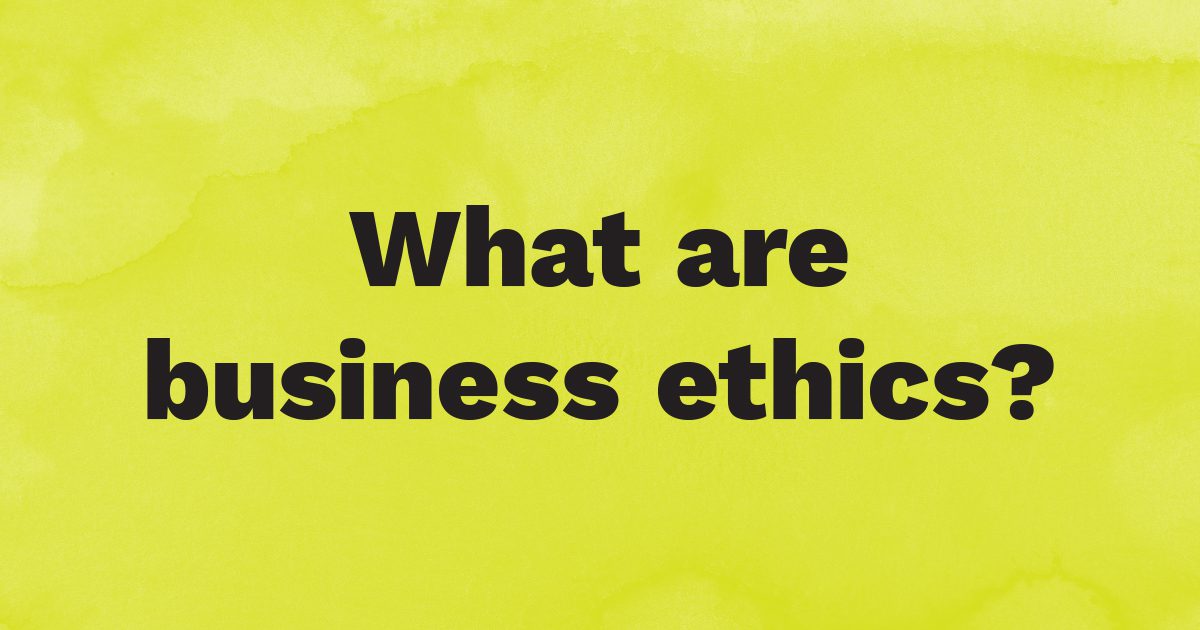What are Business Ethics?

Business ethics is the body of principles that guides businesses in the correct and ethical operation of their enterprises.
Nearly every aspect of running a business has ethical implications. This broad application, coupled with the sometimes-complex nature of running a business, means that the field of business ethics can quickly become complicated.
Nevertheless, ethics fundamentals encompass concepts that we are all familiar with, such as integrity, accountability, honesty, fairness, and responsibility.
With these basic building blocks in mind, every business should develop its own set of ethical principles based on its specific needs.
A company culture with a strong ethical foundation can help a business build trust with its customers, employees, and other stakeholders, leading to increased profits – because businesses that operate ethically tend to be more successful than those that don't.
In addition, companies that display ethical behavior are likely to be seen as reputable by their peers, which can help them attract new customers and retain existing ones.
What Are the Basic Principles of Business Ethics?
While it is true that business ethics might vary to reflect the needs of specific businesses, there are some fundamentals that should be integrated into every company’s operations and culture.
- Keep information confidential.
Do not disclose confidential information to anyone outside the company without proper authorization.
- Follow the law.
Do not break laws or regulations that could hurt your company's reputation or bottom line.
- Protect intellectual property.
Do not steal or misappropriate intellectual property belonging to others, especially in ways that could damage the company's reputation or bottom line.
- Respect human rights.
Treat all employees fairly and respectfully, regardless of their position or role within the company.
- Avoid conflicts of interest.
Avoid any situation in which you have a conflict of interest with your work or financial obligations to the company.
How Can I Best Implement Business Ethics Principles in My Organization?
There is no one answer to this question. However, implementing sound business ethics principles can help your organization operate effectively and ethically. Here are some tips to get you started.
- Establish clear guidelines for acceptable behavior.
Ensure that all employees know what is expected of them and what will result in disciplinary action. Create policies and procedures to make sure that these guidelines are followed throughout the organization. - Educate your employees.
Educating employees about business ethics and their responsibilities in relation to the organization's goals makes a difference. Help them understand why certain behaviors are ethically questionable and how they might affect the company's reputation or bottom line. - Monitor and enforce compliance with company policy.
Regularly review practices for potential violations and take appropriate action, such as suspensions or firings, when necessary. Make the consequences of failure to comply known to employees. - Build transparency into your operations.
Communicate openly with key stakeholders (customers, employees, creditors) about your company's activities and finances. This minimizes potential conflict or misunderstanding and ensures that everyone understands what is happening behind the scenes.
Openly discuss the steps you are taking to create an ethically grounded business.
What Are Some of the Most Common Violations of Business Ethics?
Businesses that engage in unethical practices can face legal consequences, damage their reputation, and even lose customers. Here are some of the most common violations of business ethics:
- Failing to disclose information.
Many businesses fail to disclose important information about their products or services before selling them. This can lead consumers to unwittingly make unwise decisions, leading to financial loss or injury. - Misleading customers.
Many businesses mislead their customers by advertising goods or services that are not actually available. This can damage the company’s reputation if the truth is discovered later on. - Harassment and discrimination.
Businesses that engage in harassment or discrimination against their employees or customers run the risk of lawsuits and negative publicity. This type of behavior is unacceptable and will not be tolerated by authorities or potential customers. - Violating intellectual property rights.
Businesses that violate intellectual property rights may face legal action and significant financial losses. This type of behavior is not only illegal, but it can damage a company's reputation and standing in the marketplace.
What Should I Do If I Think My Company Is Acting Unethically?
Being the head of a company means making tough decisions that sometimes have far-reaching consequences. If you think your company is engaging in unethical behavior, there are a few things you can do to rectify the situation.
First, talk to your management team about what practices concern you. Chances are, they'll be able to address the issue appropriately. If that doesn't work, reach out to your attorney or a professional ethics consultant. They can advise you on how to deal with the issue and protect your company's interests.
The Bottom Line
Business ethics is a complex and evolving area. However, there are some basic principles that all businesses should strive to follow to ensure that they are operating in a manner that is both ethical and legal.
Related Terms
Sorry, we couldn't find any posts. Please try a different search.
Sorry, we couldn't find any posts. Please try a different search.
Featured Book

